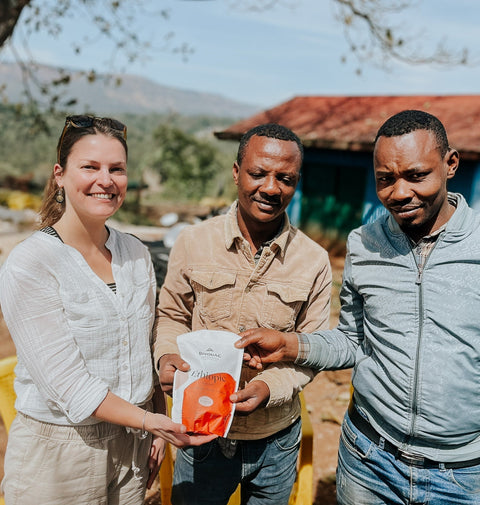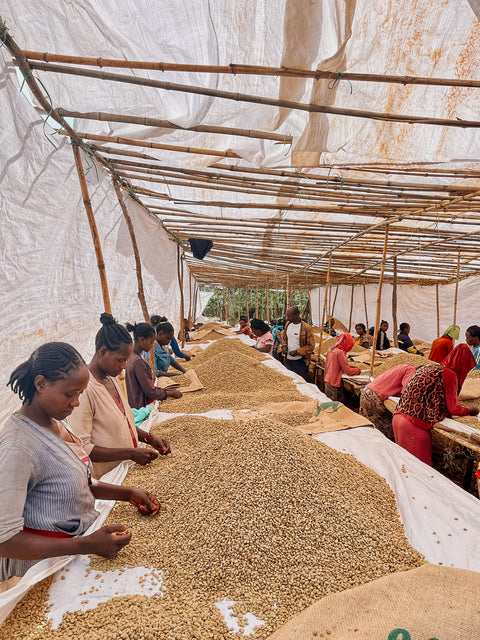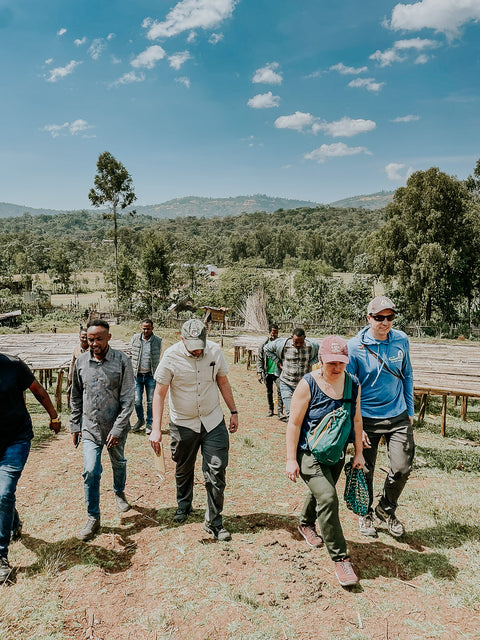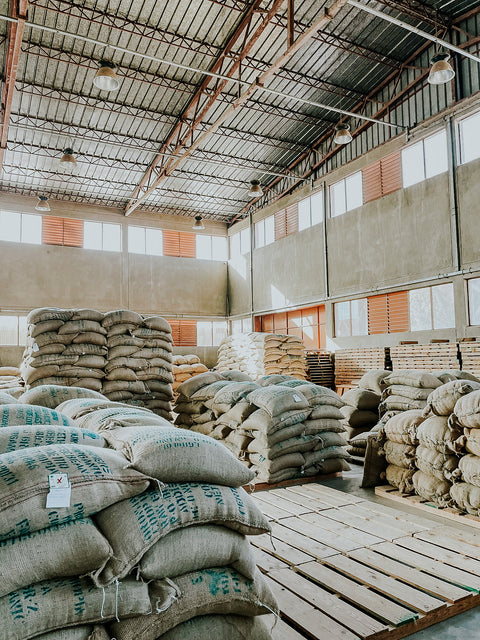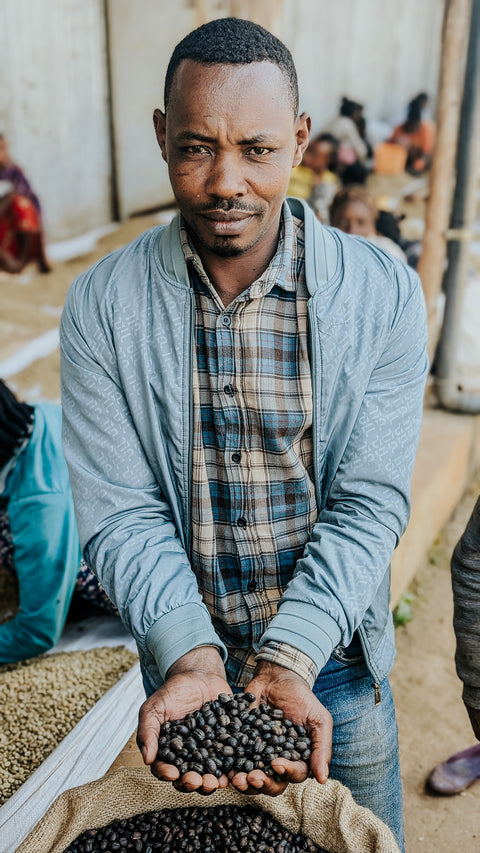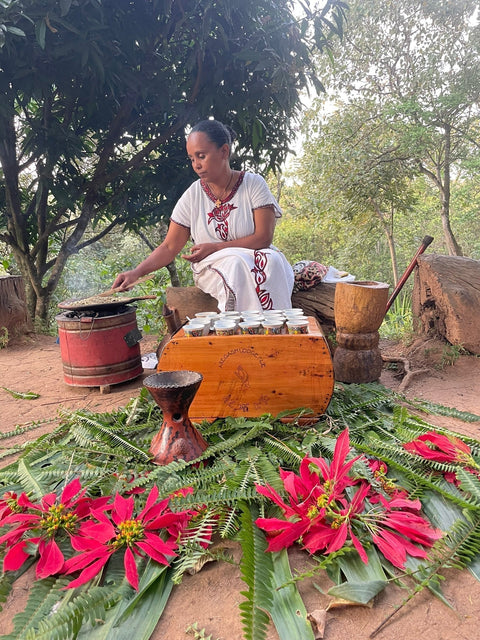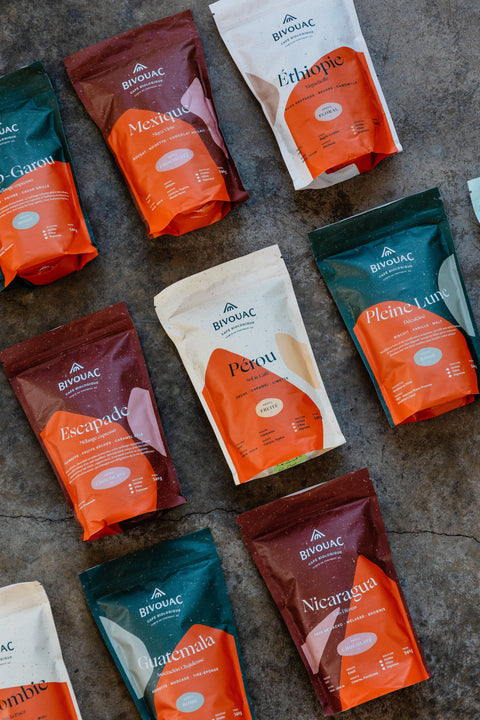Part 2: Yirgacheffe region (coop. Negele Gorbitu)
After a few days in the Sidama region, we set off for the famous Yirgacheffe region, closer to the border with Kenya.
To do this, we had to change driver and translator, as another language is spoken in this region (Oromo). There are over a hundred languages and dialects in Ethiopia, the main ones being Amharic, Sidamo, Oromo and Somali).
Our translator, Anuma Getachew, was a friendly representative of the Oromia Coffee Farmers Cooperative Union (OCFCU). This cooperative represents and exports beans from over 400 small producer groups spread across the large high-altitude Oromia region (encompassing Yirgacheffe, Guji, Limu, Harrar and Jimma).
Coffees from this part of Ethiopia are recognized as some of the finest in the world, derived from ancestral botanical varieties (heirloom) with a delicate, floral profile almost akin to tea. So it was with great excitement that we visited Cooperative Coffees' main partner in the Yirgacheffe region, the Negele Gorbitu growers' cooperative.
The co-op's board members welcomed us outside, where we had a splendid view of the mountains. Since we've been roasting their beans at Bivouac for several years, I had the pleasure and honor of offering them one of our bags. After a few exchanges about the challenges we've encountered this year, such as the heavy rains and the emergence of private exporters in the region offering good prices but little concern for the quality and traceability of the coffee, we toured their impressive facilities.
A small group of women were still busy hand-sorting coffee beans on drying beds (see photo below). In most coffee-producing countries, sorting beans to remove imperfections or those with defects is now done mechanically or with machinery. In Ethiopia, the beans are still sorted manually in several stages, which contributes to the excellent quality of the coffee.
Negele Gorbitu is a cooperative that invests heavily in its social infrastructure for its members (600 members sharing 830 hectares of washed and natural coffee production). There's a school (primary and secondary) on site, a medical clinic and support for members to make their cooking facilities more ecological and less harmful to air quality (coal-free, for example).
In Oromo, “nege” means peace and “gorbitu” is the name of a large, majestic tree found in the region. The Negele Gorbitu growers we met represented their name well, exuding an atmosphere of peace and wisdom that is certainly passed on in the cultivation of their coffee.
To taste this exceptional coffee, visit our online store!
